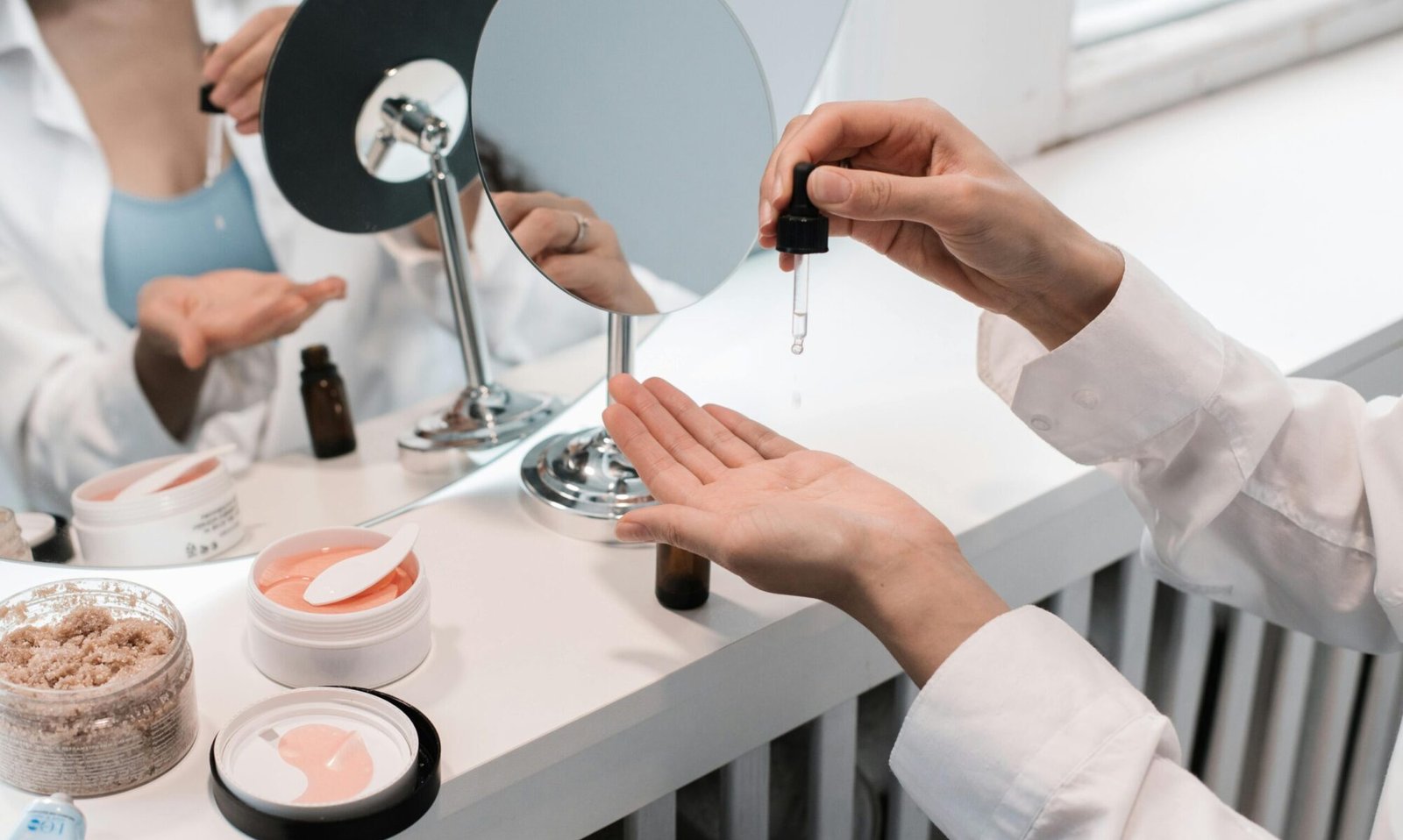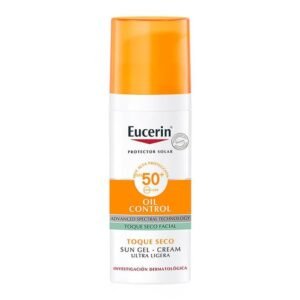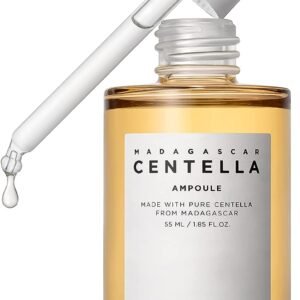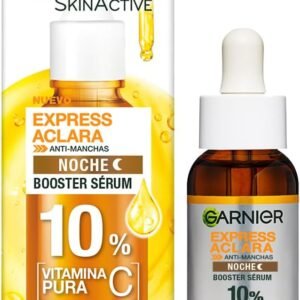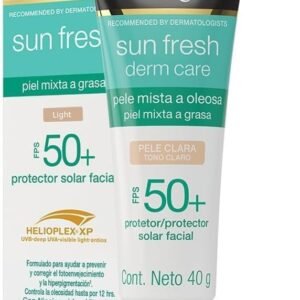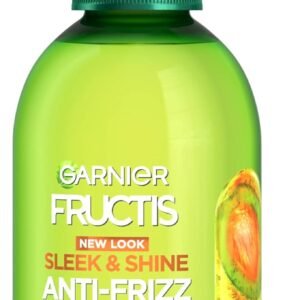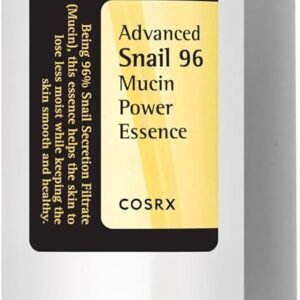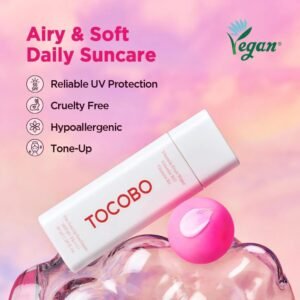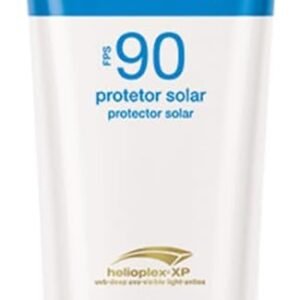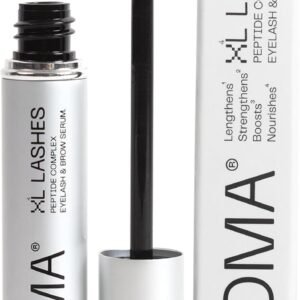Introduction to Bakuchiol
Bakuchiol is a natural compound extracted from the seeds and leaves of the Psoralea corylifolia plant, commonly known as Babchi. This remarkable plant has been revered in traditional medicinal practices for centuries. In Ayurvedic medicine, Babchi has been utilized for its myriad therapeutic properties, particularly for skin-related ailments. Similarly, Chinese traditional medicine has long praised the plant for its healing virtues. The inclusion of Psoralea corylifolia in age-old remedies signifies its potent efficacy and reliability.
In recent years, bakuchiol has gained significant attention and popularity within the contemporary skincare industry. As a natural alternative to retinol, bakuchiol delivers impressive results without the commonly associated side effects of retinol, such as dryness and irritation. Its gentle yet effective nature makes it suitable for a wider range of skin types, including sensitive skin that might not tolerate retinol well. This compelling characteristic has propelled bakuchiol into the spotlight, offering an enticing option for those seeking a more natural approach to skincare.
Primary focus on bakuchiol over recent periods has triggered extensive research and product development. Clinical studies have corroborated its anti-aging and skin-smoothing properties, aligning it closely with the benefits traditionally ascribed to retinol. Brands are increasingly formulating serums, creams, and lotions containing bakuchiol, catering to consumers’ burgeoning demand for natural, plant-based skincare solutions. This surge in popularity underscores the thriving shift towards safer, holistic, and efficacious skincare alternatives.
Bakuchiol is not merely a fleeting trend; rather, it represents a profound return to nature-derived ingredients within the skincare realm. Its origins and sustained usage in traditional medicine forms a strong basis for its modern-day applications, bridging the gap between ancient wisdom and contemporary science. As the skincare community continues to embrace natural alternatives, bakuchiol stands out as a prime example of how nature’s bounty can be harnessed for enhanced skin health.
Bakuchiol, a meroterpene phenol derived from the seeds and leaves of the Psoralea corylifolia plant, has surged in popularity as a natural alternative to retinol in skincare. Chemically, it is characterized by a bicyclic structure that includes a phenolic ring and a prenyl side chain. This structure underpins its stability and function in cosmetic applications.
Retinol, conversely, is a derivative of vitamin A with a polyene chain ending in a hydroxyl group. The major structural difference lies in Bakuchiol’s phenolic base compared to retinol’s polyene backbone. Despite these differences, Bakuchiol and retinol share functional similarities; both have potent antioxidant properties and influence gene expression in skin cells, leading to collagen production and enhanced skin cell turnover.
One of the key distinctions comes from how these compounds interact with skin over time. Retinol is known to cause irritation and sensitivity, especially in higher concentrations, due to its ability to accelerate the skin’s renewal process, which can lead to dryness and peeling. Bakuchiol, however, provides a gentler alternative. Its phenolic structure is less irritating, making it suitable for sensitive skin types while still delivering many of the same benefits as retinol, such as reducing the appearance of fine lines, improving skin elasticity, and evening out skin tone.
The processing of Bakuchiol for cosmetic use typically involves its extraction from the Psoralea corylifolia plant through a refined process of solvent extraction, followed by purification. The resulting extract is then carefully formulated into serums, creams, and oils, ensuring its active compounds are preserved and remain effective upon application.
In cosmetic formulations, Bakuchiol works in synergy with other skincare ingredients. It is often combined with hydrating agents like hyaluronic acid and plant-based oils to enhance penetration and maximize its beneficial effects. Its stability in various formulations makes it an adaptable ingredient across multiple skincare products, broadening its appeal as an effective natural alternative to retinol.
Uses of Bakuchiol in Skincare
Bakuchiol has garnered significant attention in recent years for its potent skincare benefits, particularly as a natural alternative to retinol. This plant-derived compound is extracted from the seeds and leaves of the Psoralea corylifolia plant. Notably, its application in various skincare products manifests in multiple forms, providing a gentler yet effective solution for diverse skin concerns.
In the realm of anti-aging skincare, bakuchiol is predominantly utilized in creams, serums, and moisturizers. Its primary appeal lies in its ability to mimic the benefits of retinol without the associated irritation or sensitivity. For instance, bakuchiol-infused anti-aging creams help diminish the appearance of fine lines and wrinkles by promoting collagen production. Furthermore, serums containing bakuchiol are highly sought-after for their capacity to improve skin texture and elasticity, offering a smoother and more youthful complexion.
Moisturizers that incorporate bakuchiol serve a dual purpose; they hydrate the skin while providing anti-aging properties. This makes them particularly beneficial for individuals with sensitive skin or those who experience adverse reactions to retinol, such as redness or peeling. By integrating bakuchiol, these products deliver efficacy without compromising skin comfort.
Apart from its prominent role in anti-aging products, bakuchiol’s versatility extends to various other cosmetic and dermatological applications. It is often included in formulations targeting acne-prone skin. The compound’s anti-inflammatory and antibacterial properties help reduce blemishes and prevent future breakouts, making it an excellent choice for acne serums and spot treatments. Additionally, its antioxidant traits are instrumental in protecting the skin against environmental stressors, thereby curbing premature aging and skin damage.
Ultimately, bakuchiol’s broad spectrum of benefits and its compatibility with a wide range of skincare formulations underscore its growing popularity. Its natural composition and gentle effectiveness position it as a compelling alternative for those seeking the advantages of retinol without its potential drawbacks. This makes bakuchiol a valuable component in the ever-evolving landscape of skincare solutions.
Benefits of Using Bakuchiol
Bakuchiol, derived from the seeds and leaves of the Psoralea corylifolia plant, has garnered attention in recent years as a formidable natural alternative to retinol. Unlike retinol, which can often cause irritation and sensitivity, bakuchiol boasts a gentler approach while delivering comparable benefits. One of the principal advantages of bakuchiol is its anti-aging properties. It has been clinically demonstrated to reduce the appearance of fine lines and wrinkles, making skin appear more youthful and rejuvenated.
Furthermore, bakuchiol promotes collagen production, an essential protein that maintains skin firmness and elasticity. By stimulating collagen synthesis, bakuchiol helps to improve skin texture and resilience, resulting in a smoother and more supple complexion. The enhancement of skin texture is not just limited to anti-aging effects; bakuchiol can also refine skin tone, leading to a more even and radiant appearance. This multifunctional ingredient addresses a myriad of concerns, from discoloration to rough patches, thereby enhancing overall skin health.
In addition to its anti-aging benefits, bakuchiol is known for its potent antioxidant properties. Antioxidants play a critical role in combatting free radicals, which can lead to premature aging and skin damage. By neutralizing these harmful agents, bakuchiol helps protect the skin from environmental stressors and promotes a healthier, more vibrant complexion.
Bakuchiol also exhibits significant anti-inflammatory properties, making it a beneficial ingredient for individuals with acne-prone or sensitive skin. Its ability to soothe and calm inflammation can reduce the occurrence of breakouts and alleviate redness and discomfort. Moreover, bakuchiol’s antimicrobial characteristics further aid in controlling acne, providing a comprehensive approach to skin care.
Overall, the benefits of using bakuchiol extend beyond just one aspect of skin health. Its versatile properties make it a valuable addition to any skincare regimen, offering a natural, gentle, yet effective solution for a wide array of skin concerns.
Scientific Evidence and Studies
Recent years have seen a growing interest in Bakuchiol, primarily due to its remarkable similarities to retinol in addressing skin care concerns. The scientific evidence available highlights Bakuchiol as a promising natural alternative to retinol. Clinical studies and empirical research have begun to substantiate the efficacy of Bakuchiol in improving various skin conditions.
A pivotal study published in the British Journal of Dermatology compared the effects of Bakuchiol and retinol on human skin. This randomized, double-blind study found that Bakuchiol significantly reduced the appearance of fine lines and wrinkles, akin to retinol, without the usual side effects such as dryness or irritation. Participants applying Bakuchiol twice daily for 12 weeks experienced notable improvements in skin elasticity and firmness.
Furthermore, research conducted by the International Journal of Cosmetic Science assessed the long-term safety and efficacy of Bakuchiol. The study indicated that Bakuchiol not only enhances collagen production but also improves skin thickness and elasticity over extended use. Additional studies have supported these findings, underscoring Bakuchiol’s potential in promoting youthful, radiant skin with minimal adverse reactions.
Comparative analyses have also highlighted the superior tolerability of Bakuchiol. Unlike retinol, Bakuchiol does not induce photosensitivity, making it a safer option for daytime use. This aspect has been particularly emphasized in studies aimed at users with sensitive skin types or conditions such as rosacea or eczema, who are often unable to tolerate retinol-based products.
In terms of antioxidant properties, Bakuchiol is demonstrated to protect skin from oxidative stress, similar to retinol. A study published in the Journal of Ethnopharmacology elucidated Bakuchiol’s ability to neutralize free radicals, thus reducing the impact of environmental damage on the skin. These antioxidant benefits further solidify Bakuchiol’s role in maintaining optimal skin health.
Overall, the accumulated evidence from diverse scientific studies elucidates Bakuchiol as an effective, safer alternative to retinol. Its benefits for skin health and its minimal risk profile suggest a promising future in the realm of natural skincare solutions.
While Bakuchiol is often celebrated as a natural alternative to retinol, it is crucial to understand the potential side effects and disadvantages associated with its use. Like any skincare ingredient, Bakuchiol can cause reactions, especially for individuals with sensitive skin or specific allergies. Notably, users have reported minor issues such as mild irritation, redness, and slight peeling. However, these side effects are generally less severe compared to those associated with retinol, which can include dryness, flaking, and pronounced irritation.
Bakuchiol’s gentler profile makes it an appealing option for individuals who may not tolerate retinol well, but it doesn’t preclude the possibility of adverse reactions. Sensitivity or allergies to Bakuchiol, though relatively rare, may manifest as itching, swelling, or rashes. Therefore, it is essential to take precautionary measures, including performing a patch test before incorporating Bakuchiol into your routine. This simple step can help identify any potential hypersensitivity or allergic reactions, averting more significant skin issues.
Moreover, consulting with a dermatologist before beginning any new skincare regimen containing Bakuchiol is advisable. A professional evaluation ensures that you understand the suitability of the ingredient for your skin type and allows for the identification of any contraindications with other products you may already be using. Dermatologists can provide personalized advice, helping you navigate the often complex landscape of skincare, thus optimizing the benefits while minimizing risks.
In conclusion, while Bakuchiol presents itself as a promising natural alternative to retinol with fewer and generally milder side effects, caution is still necessary. Proper patch testing and professional consultation are key steps to ensure a safe and effective incorporation of Bakuchiol into your skincare routine. This balanced approach will allow you to reap the benefits of this remarkable ingredient while safeguarding your skin health.
Who Should Use Bakuchiol?
Bakuchiol has emerged as a natural alternative to retinol, making it an attractive option for a variety of skin types and conditions. It is particularly beneficial for individuals who seek anti-aging benefits without the potential irritation commonly associated with retinol. If you have sensitive skin, Bakuchiol may be the ideal addition to your skincare routine, offering similar benefits to retinol but with a gentler profile. This makes it suitable for individuals with conditions such as rosacea, eczema, or general skin sensitivities.
People with dry or combination skin can also find Bakuchiol beneficial. Unlike retinol, which can sometimes lead to excessive dryness and flaky skin, Bakuchiol hydrates while promoting cell turnover, helping to maintain moisture balance. Additionally, its anti-inflammatory properties can help reduce redness and even out skin tone, making it an excellent choice for those struggling with hyperpigmentation or uneven skin texture.
For individuals who are new to incorporating active ingredients into their skincare routine, Bakuchiol can be an excellent starting point. Its mild, non-irritating nature allows for daily use, even for those with previously untreated skin. To integrate Bakuchiol into an existing routine, begin by using it in the evening after cleansing and before moisturizing. When first introducing Bakuchiol, it is advisable to use it 2-3 times a week and gradually increase frequency as the skin builds tolerance.
Moreover, Bakuchiol can be used in conjunction with other common skincare ingredients such as hyaluronic acid or vitamin C. This makes it a versatile addition, capable of enhancing the efficacy of your current regimen without causing adverse reactions. Ultimately, the adaptability and gentle nature of Bakuchiol make it an excellent choice for a wide array of skin types and concerns, providing a natural yet effective solution for those looking to improve their skin health.
Conclusion: Is Bakuchiol Right for You?
After delving into the impressive benefits and potential downsides of Bakuchiol, it is evident that this natural alternative to retinol offers a compelling option for skincare enthusiasts. Bakuchiol exhibits remarkable properties reminiscent of retinol, such as the ability to improve skin texture, reduce the appearance of fine lines, and enhance overall skin radiance. Moreover, its plant-derived origin makes it an excellent choice for individuals seeking a gentler and more sustainable approach to skincare.
Despite its positive attributes, it is crucial to consider that Bakuchiol, like any skincare ingredient, may not be suitable for everyone. While many have praised its efficacy, individual skin responses can vary. Some users may experience minimal irritation, though it generally tends to be less potent than retinol, making it a safer alternative for those with sensitive skin.
The decision to incorporate Bakuchiol into your skincare routine should be made with thoughtful consideration. Consulting with a dermatologist or skincare professional is recommended to ensure that it aligns with your specific skin needs and goals. Reading reviews and conducting research can also provide additional insights into the experiences of others, helping reinforce your choice.
In conclusion, Bakuchiol emerges as a promising natural substitute for retinol, offering numerous skin-enhancing benefits with relatively fewer risks. Whether you are seeking to establish a more natural skincare regimen or simply looking to explore alternatives, Bakuchiol warrants consideration. However, personalized advice and individual experimentation are key to determining its suitability for you. By doing so, you can make an informed and confident decision about integrating Bakuchiol into your skincare practices.
